
Squirrel Monkey
Squirrel Monkey
Squirrel Monkey
The squirrel monkey is among the smallest in the primate family. It gets its name because it resembles a squirrel in size, agility, and color, and moves swiftly through the trees. Its round eyes and charming face combined with a tiny body that moves quickly make it a very adorable animal. Squirrel monkeys are not only found in the wild or zoos but have also become popular as pets recently and are now sold in pet shops as exotic animals. This article will introduce the habitat and characteristics of the squirrel monkey, along with its various charms.
Squirrel Monkey Basic Infomation
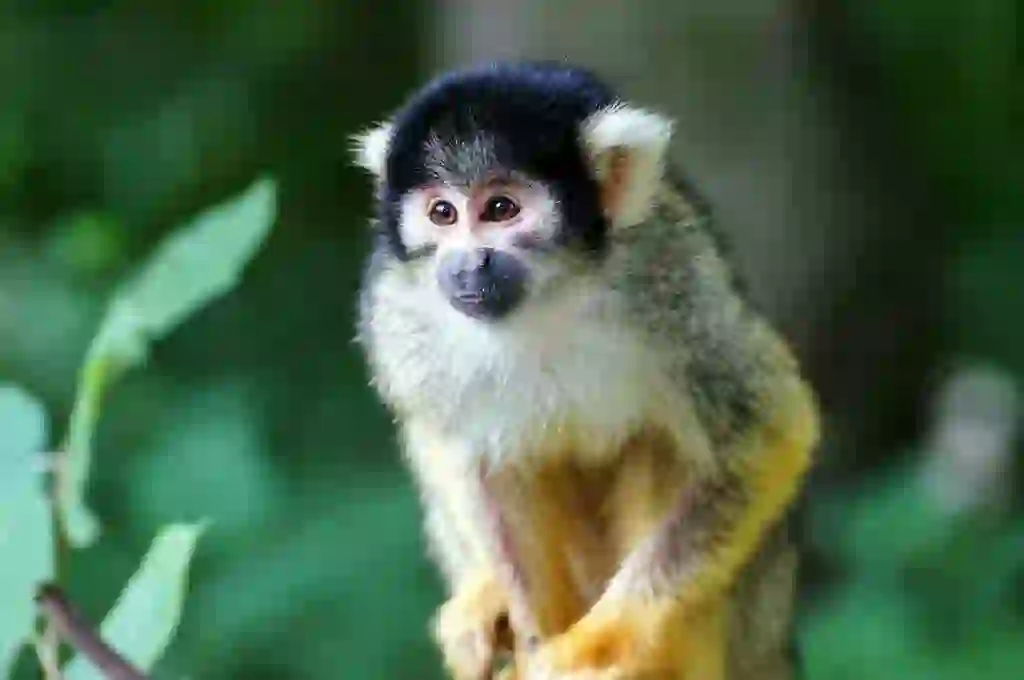
Class: Mammalia, Order: Primates, Family: Cebidae, Genus: Saimiri
Body length: 23–37 cm, Body weight: 500 g to 1 kg
Habitat: Tropical rainforests from Colombia to Paraguay in South America
The squirrel monkey is the smallest species within the Cebidae family and is famous for being kept as an exotic pet.
Its fur is yellow to yellowish-brown, with white ears, face, throat to chest, and black around the mouth.
It is the smallest in body length among the New World monkeys and moves agilely across trees like a squirrel.
Its distinctive long tail is not prehensile but helps maintain balance when leaping from branch to branch.
The shape of its nails is flat, similar to humans, which helps in climbing trees by grasping.
It is diurnal, becoming more active during the cooler temperatures of the morning and evening. It usually sleeps on trees at night.
A troop typically consists of 2 to 5 males and their families, living together in large groups on trees.
They descend to the ground to catch terrestrial insects for food. In areas abundant with food, hundreds of squirrel monkeys can gather.
Normally, troops have a wide range of activity, moving from tree to tree to forage. However, where food is plentiful, troops meet without much territorial conflict and tend to share the resources amicably.
Generally, squirrel monkeys are not adept at foraging alone, hence they often follow other types of monkeys adept at finding food or use the paths other monkeys have used.
The mating season coincides with the dry season in South America from September to November. After a pregnancy of about 5 to 6 months, during the plentiful rainy season from February to April, they give birth to 1-2 offspring at a time.
Offspring become independent at about one year old, with males reaching sexual maturity around five years and females at about three years.
Squirrel Monkey Q&A

What is the origin of the name 'Squirrel Monkey'?
The name 'squirrel monkey' comes from the fact that it is the smallest among the South American monkeys and its build and color resemble a squirrel. In English, it is called 'squirrel monkey' because it combines the words 'squirrel' for the rodent and 'monkey' for the primate.
Its scientific name is 'Saimiri sciureus'. 'Saimiri' reflects the common name 'squirrel monkey', while 'sciureus' indicates a subspecies or specific descriptor for common squirrel monkeys.
Squirrel monkeys are also known as common squirrel monkeys or Bolivian squirrel monkeys.
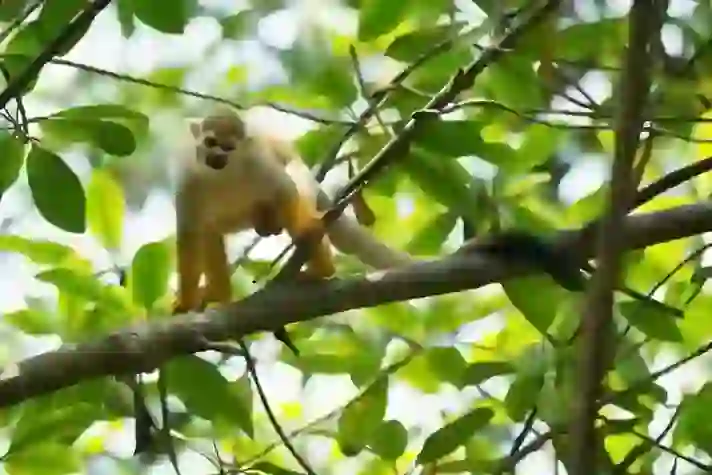
Why do squirrel monkeys live there?
Squirrel monkeys prefer environments close to water such as forests along rivers and mangrove swamps, which makes the Amazon River basin with its dense tropical forests a suitable habitat.
The mangroves where squirrel monkeys are commonly found stretch across South America, in zones where freshwater and seawater mix, typically in tropical to subtropical regions.
Moreover, living in the trees of dense tropical rainforests facilitates their movement and lifestyle.
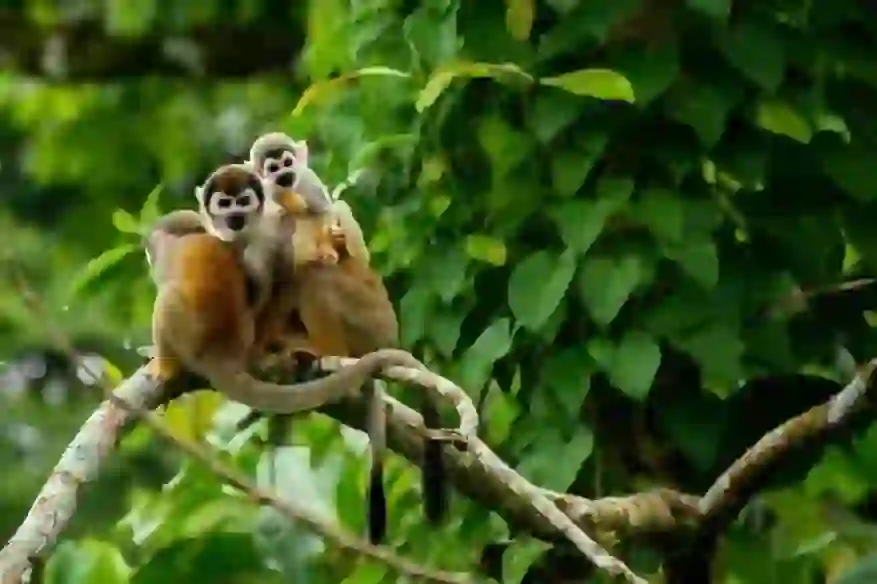
What do squirrel monkeys eat?
Squirrel monkeys are omnivorous; in the wild, they mainly consume fruits, nuts, leaves, and also animal proteins like insects, small birds, and frogs.
In zoos, they eat a variety of fruits and vegetables such as kiwis, apples, carrots, sweet potatoes, greens, boiled eggs, and prepared food.
As pets, they are fed commercial monkey food as a staple, supplemented with fruits like apples and bananas, insects like mealworms and crickets, and other animal proteins like eggs and dairy products.
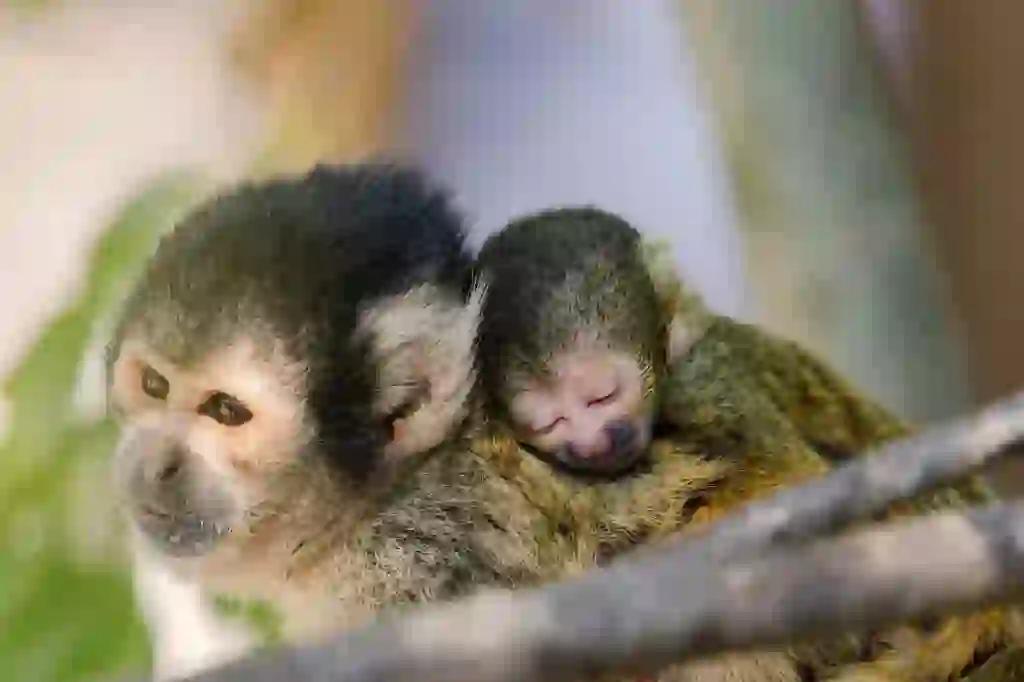
Do squirrel monkeys avoid territorial fights?
Interestingly, squirrel monkeys seldom engage in territorial disputes or fight over food. This is because they are not adept at foraging alone and often follow other monkeys that excel at finding food, benefiting from the leftovers.
When they do find an abundance of food, the discovering troop does not monopolize the area but rather, welcomes other troops to share the bounty, illustrating a cooperative nature among the groups.
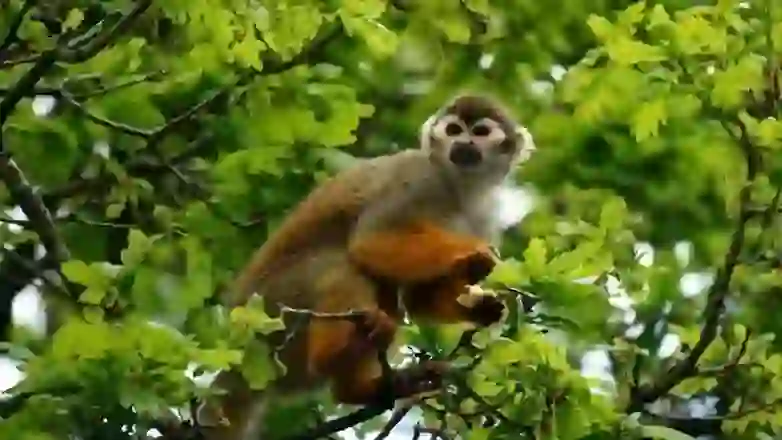
Can squirrel monkeys grasp branches with their tails?
Despite having a tail longer than their body, squirrel monkeys cannot use it to grasp or manipulate objects. The tail is primarily used for balance when navigating and jumping between tree branches.
Instead of using their tail, they utilize their nails, which are flat and human-like, to grasp and climb.
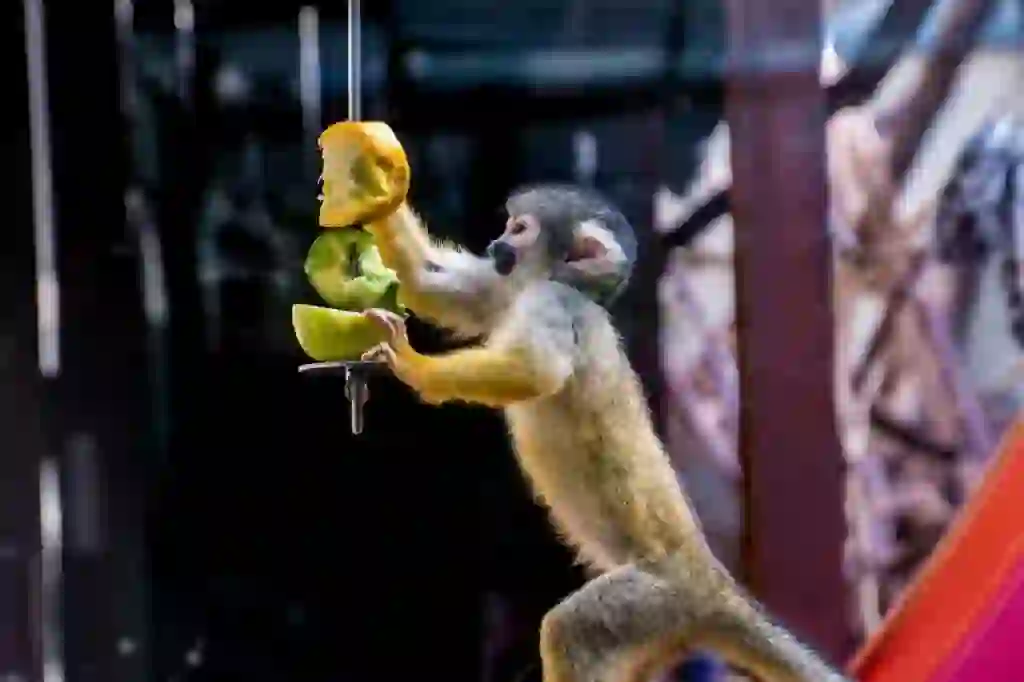
Were squirrel monkeys the first primates in space?
Squirrel monkeys are known for being among the first primates in space and successfully returning to Earth. In 1958, a squirrel monkey named 'Gordo' was the first primate to travel into space aboard a rocket, although he did not survive the return.
A year later, another squirrel monkey named 'Baker' along with a rhesus monkey were sent into space and successfully returned after a 15-minute journey, marking a historic moment as squirrel monkeys became the first primates to travel to space and return safely.
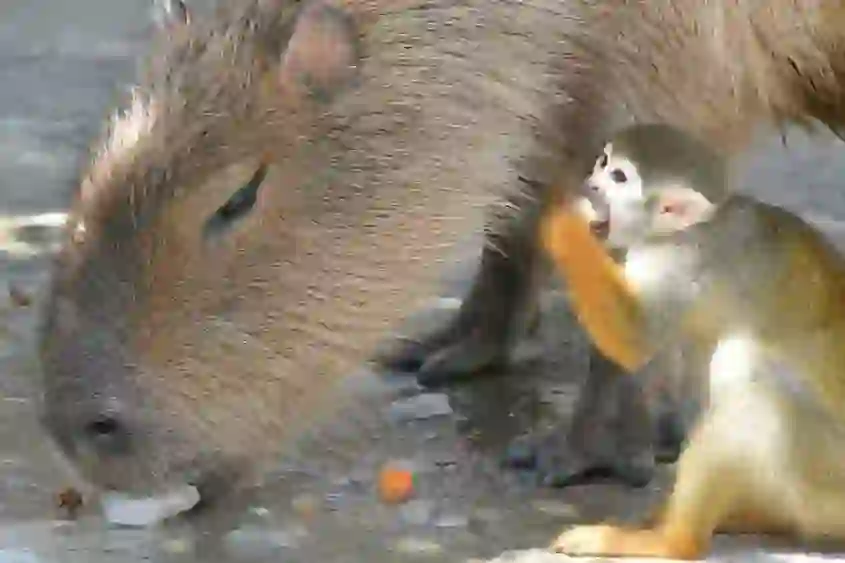
Are squirrel monkeys solitary and capricious by nature?
Squirrel monkeys live in groups in the wild and are rarely found alone. They are known for being sociable and dislike solitude, which can lead them to refuse food when isolated.
Although generally cautious and alert, signaling danger to their peers with loud screams similar to car brakes, they are also known for their mercurial nature, showing clear preferences for certain foods and discarding others they dislike.
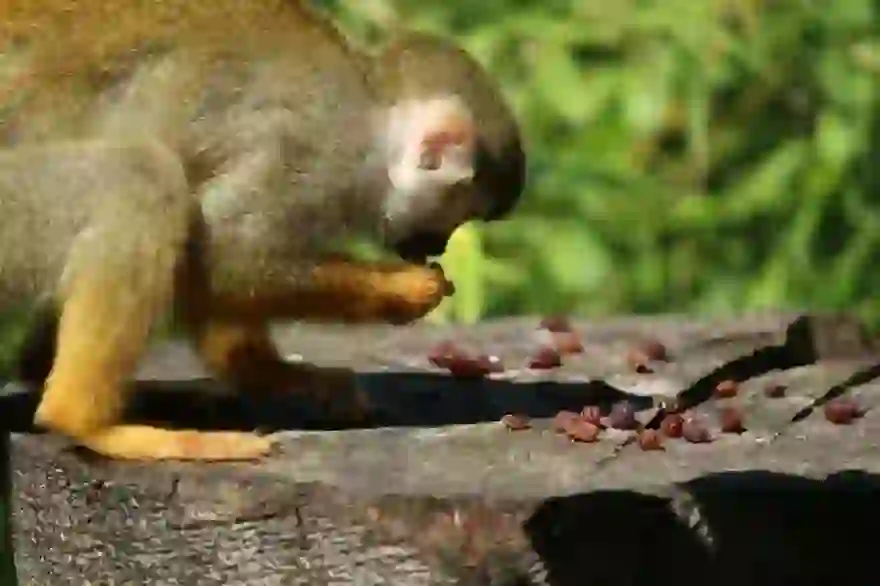
Can squirrel monkeys be kept as pets?
In recent years, squirrel monkeys have become more visible in pet shops, raising interest in their suitability as pets.
Keeping a squirrel monkey involves a moderate level of care among exotic animals. They require spacious environments mimicking their natural arboreal habitat and may be challenging to housebreak, often marking their territory with urine.
They also need warm environments due to their tropical origin, requiring additional care such as pet heaters during colder months.
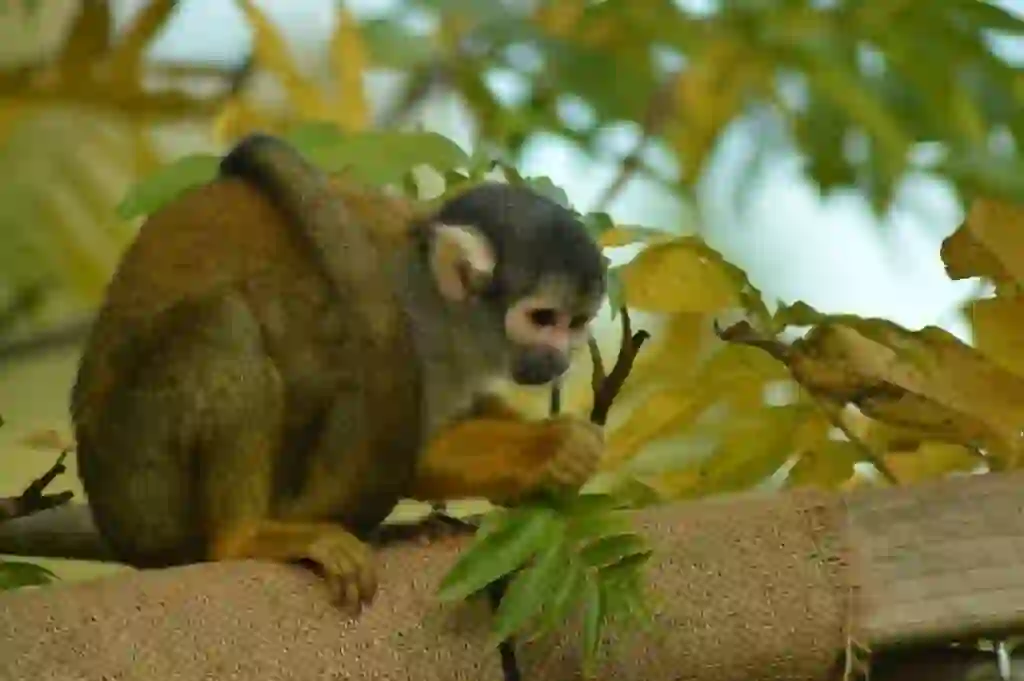
Do squirrel monkeys become accustomed to human companionship as pets?
While adorable and small, people who keep squirrel monkeys as pets often hope they will become tame. Squirrel monkeys are affectionate and enjoy playing, making them potentially good companions if properly socialized.
They can recognize their owner's scent and voice, responding positively to regular interaction and physical contact. With sufficient bonding, they may even accompany their owners on walks outdoors, using a specially designed harness and leash.
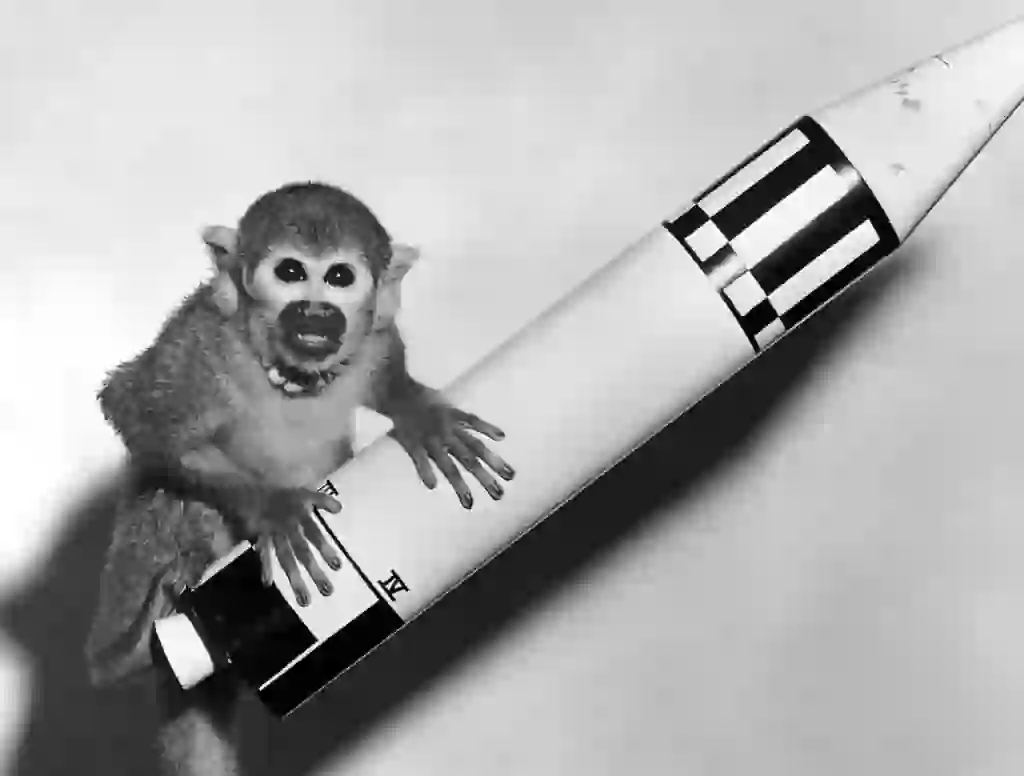
What are the considerations when keeping a squirrel monkey as a pet?
Despite their generally gentle nature, squirrel monkeys can be unpredictable and may exhibit aggressive behavior when upset or threatened. They carry various pathogens, so bites or scratches should be treated immediately to prevent infection.
They also do not use a designated toilet area, which can lead to hygiene issues if not managed carefully. Special considerations should be made to secure valuable items and manage odors when allowing them to roam outside their cages.

Would you like to become a part of the 'Animalbook.jp'?
Turn your knowledge into Q&A and share it with the world. ※Publication will be activated after purchase. Let's share information together!
Squirrel Monkey Type of List
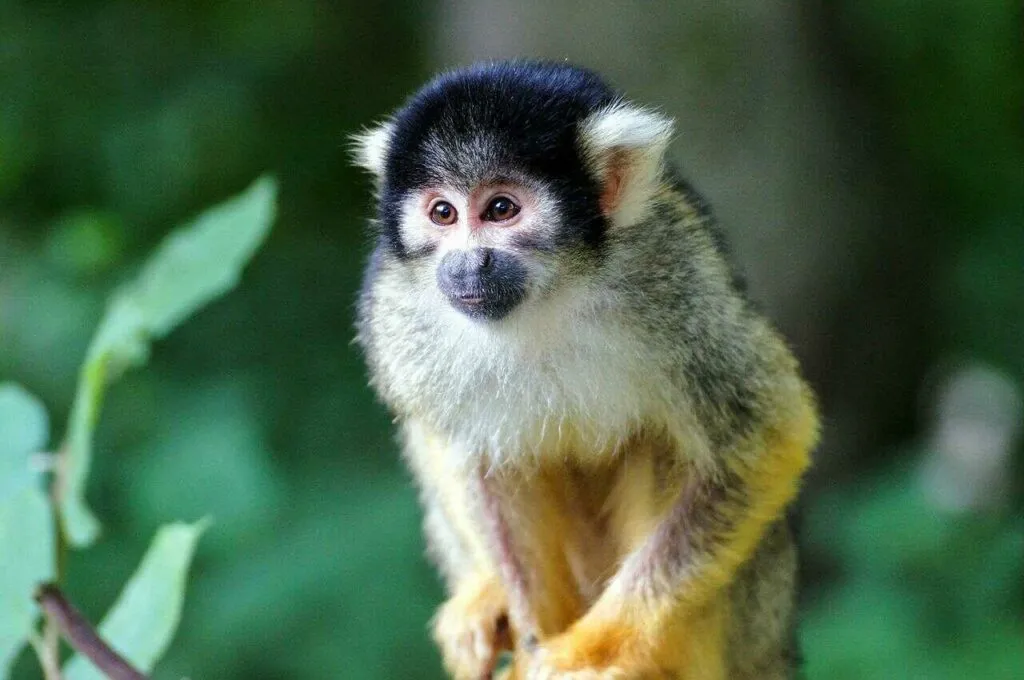
- Bolivian Squirrel Monkey
- Central American Squirrel Monkey
- Common Squirrel Monkey
- Golden-backed Squirrel Monkey
- Black-capped Squirrel Monkey
Information
Congratulations! You are the first commenter!

Create Your Favorite List!
Squirrel Monkey
Save the animals you love! Build your own list to quickly revisit your favorites later.

Would you like to leave a comment?
※Please note: This is for the purchase of rights to post comments within the article.
Find Your Favorites!
Our shop offers a unique and attractive selection of goods themed around various animals.
Squirrel Monkey References

- Wikipedia https://ja.wikipedia.org/wiki/リスザル
- 大山内動物園‐リスザル http://www.oouchiyama-zoo.com/animals/10486/
- コモンリスザル‐web猿図鑑 https://sarucom.com/common-squirrel-monkey/
- リスザル‐ペットショップのコジマ https://pets-kojima.com/library/zukan_small/detail/id=25038
- リスザルをペットとして飼いたい!種類と値段の相場は? https://er-animal.jp/pepy/1305
- リスザルは世界初の宇宙飛行猿!?大きなお目目と人懐っこさが人気!リスザルの生態や特徴について紹介します。 https://www.osaruland.jp/tips/1929/
- 第32回/リスザル‐樹上で暮らす、孤独が苦手なサル【アニマル“しっかり”みるみる】 https://kurukura.jp/car-life/20210726-90.html
Squirrel Monkey Introduction of media used
出典:https://www.pexels.com/ja-jp/ja-jp/video/1186706/

出典:https://pixabay.com/images/id-1446665/

出典:https://unsplash.com/ja/写真/SQhXlqQUhyk

出典:https://pixabay.com/images/id-7428414/

出典:https://www.pexels.com/ja-jp/ja-jp/photo/97827/

出典:https://pixabay.com/images/id-1689394/

出典:https://pixabay.com/images/id-5509762/

出典:https://pixabay.com/images/id-1234436/

出典:https://pixabay.com/images/id-4585016/
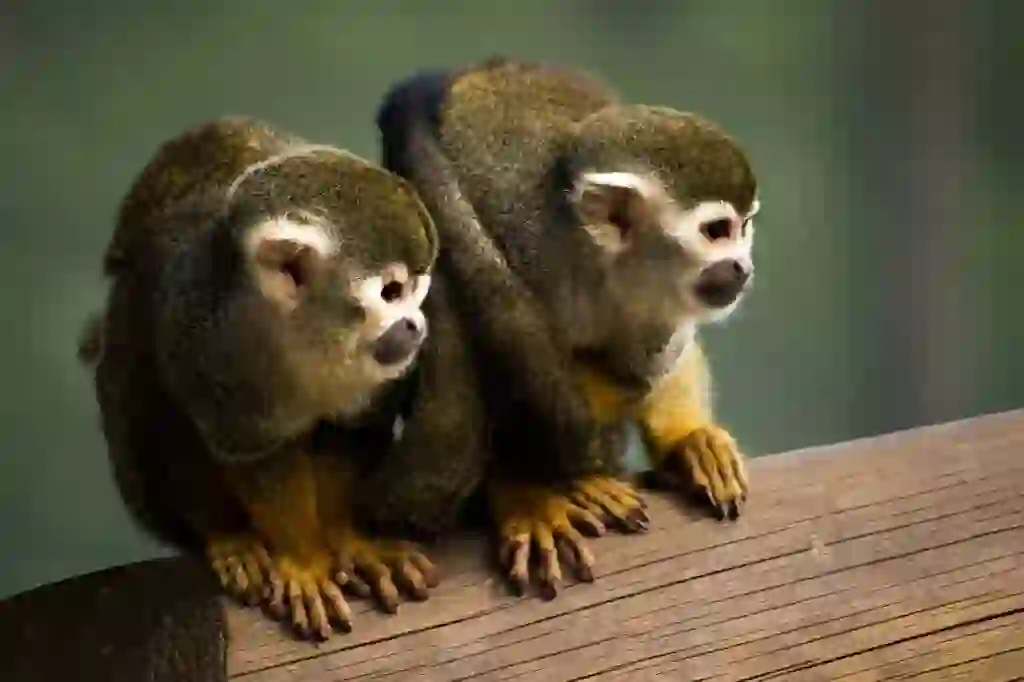
出典:https://pixabay.com/images/id-1335598/
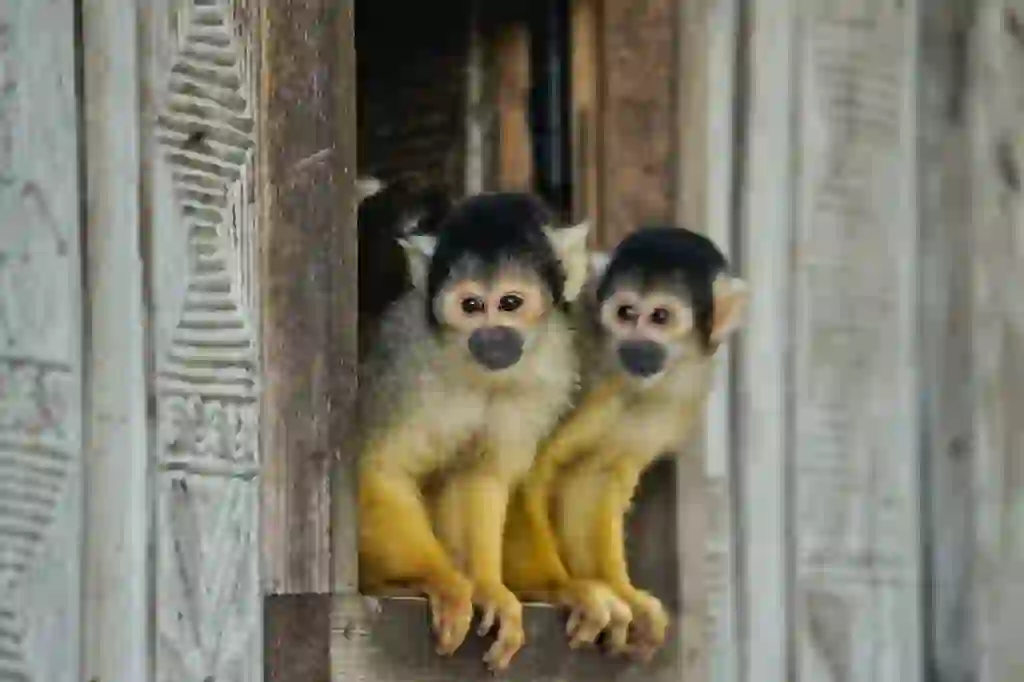
出典:https://www.pexels.com/ja-jp/ja-jp/photo/12290957/
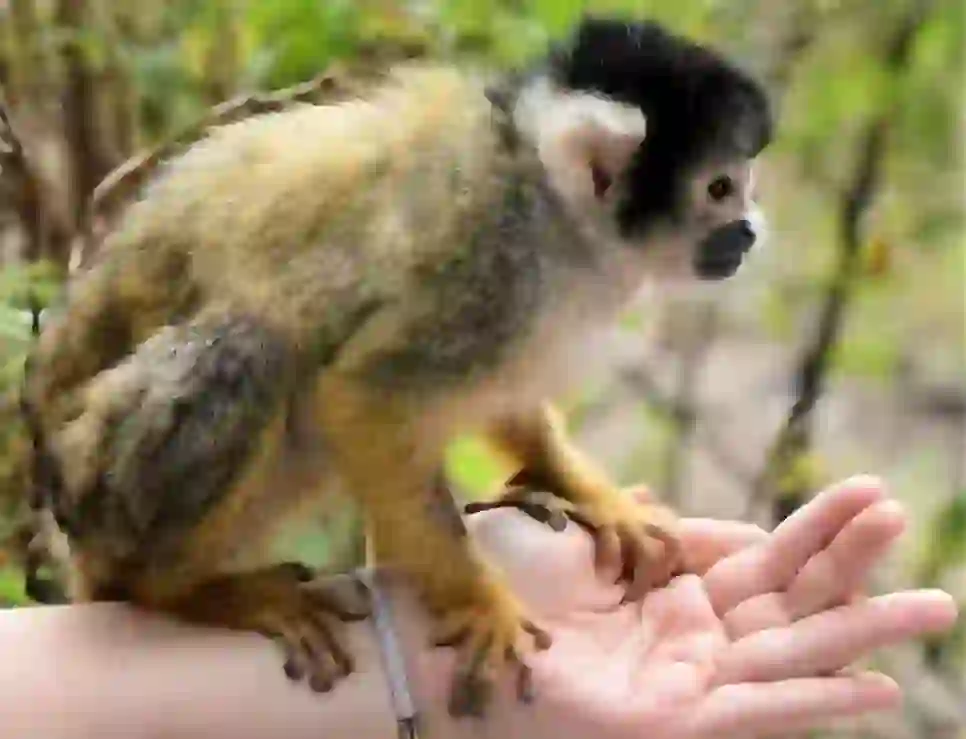
出典:https://pixabay.com/images/id-215802/

出典:https://pixabay.com/images/id-7428415/
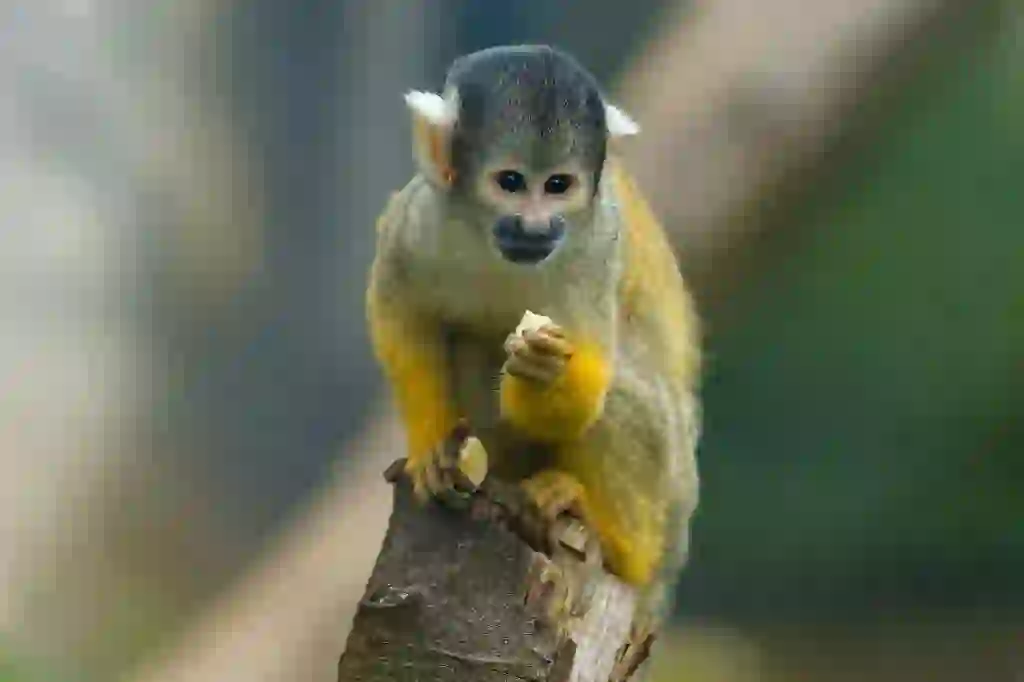
出典:https://pixabay.com/images/id-4438693/

Help Enrich Our Animalbook.jp with Your Media!
We are constantly looking to expand and enrich our Animalbook.jp with amazing photos and videos of animals. If you have any media that you'd like to share, please contribute and help us showcase the beauty and diversity of the animal kingdom. Your submissions will be credited and featured in our encyclopedia, reaching a wide audience of animal lovers.


















